Supernatural: A History of Violence Against Women
Trigger Warning: This article contains discussions of extreme violence, gore, murder, torture and sexual assault, as well as discussion of misogynistic language and themes. The slideshow spotlights graphic depictions of violence against female characters, and may be upsetting to some readers.
When Charlie Bradbury was brutally murdered within Supernatural, I responded strongly. I made sure I put up a disclaimer because I know I come on strong, and explained that my “formative years” in online culture occurred in bulletin boards dedicated to discussing Women in Refrigerators.
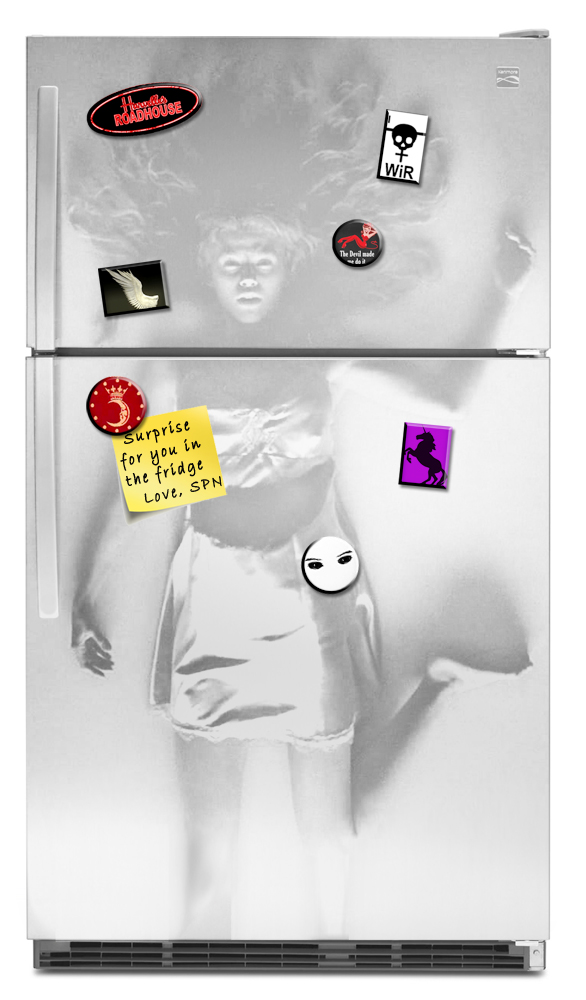 I debated online for years regarding depictions of the death, rape, depowerment, and maiming of women within comic books that seemed to serve no real purpose but to further the storylines of the male characters around them, or to ‘put them in their place.’ No matter how powerful the female character, no matter how popular, no matter how sudden or senseless the violence against them, the writers and creators would shove them into the refrigerator, leave them sprawled dead on the kitchen floor, string them up and torture them, and do it in ways that sexualized the violence against them, or reduced these heroines into mere objects, or twisted them into something unrecognizable and unrelatable.
I debated online for years regarding depictions of the death, rape, depowerment, and maiming of women within comic books that seemed to serve no real purpose but to further the storylines of the male characters around them, or to ‘put them in their place.’ No matter how powerful the female character, no matter how popular, no matter how sudden or senseless the violence against them, the writers and creators would shove them into the refrigerator, leave them sprawled dead on the kitchen floor, string them up and torture them, and do it in ways that sexualized the violence against them, or reduced these heroines into mere objects, or twisted them into something unrecognizable and unrelatable.
I love comic books. I grew up with comic book heroines as my role models. And yet, one after another, it seemed to happen to them all: every one of them was fridged, whether permanently(ish… this IS comics we’re talking about) with their deaths, or just to kick off a new story arc. It was as though comic writers couldn’t think of another way to insert drama into their stories. So, I joined the discussion of Women in Refrigerators, starting with analyzing the death of one of my favorites, Mockingbird (Bobbi, I love you, I am so happy they defrosted you eventually), and moving on through Oracle/Batgirl, Jean Grey, Gwen Stacy, Spoiler, Tigra, Illyana Rasputin, Madelyne Pryor, Moira MacTaggert, Psylocke… over and over again.
When I saw Charlie dumped into a bathtub, I realized that my reaction to events was going to be more critical than some fans are comfortable with, and so I made sure I warned accordingly, and got to work discussing and drawing comparisons, looking back through Supernatural’s history with women.
While many were upset, some fans wanted to see what happened of it, arguing that it was fair dramatic use if they did something from it, or brought Charlie back, or if the upcoming episodes fairly contextualized her death. I wanted to see if Dabb or Carver could make the episode settle for me, so I kept watching.
So we’re at the end of the season, now. We have seen everything they have written out that would have required Charlie’s death, and from what Bob Singer said at JIB, we have seen everything they have plotted out for the story so far. There’s no more moving the goal posts here. We have literally seen everything Supernatural has figured out about the tale it is telling.
And killing their most prominent female character in years still makes absolutely no sense.
Bringing up Supernatural’s unthinking, repetitive, and often meaningless violence towards women is very often dismissed by those most willing to forgive the show of its faults. That’s understandable, to an extent: we love the show, and we want to keep loving it. I don’t have any problems with people loving Supernatural, or comic books, or video games, or any other show, book, or media despite its flaws. People can love problematic works, but I think some recognition of the issues are required.
Instead, thoughtful commentary on the issues are often lumped in with reductive arguments or general outrage and dismissed along with them, or people argue you’re being too hard on the show they (and often even the critical fan) love, and are too easily offended. Really, it seems at times that people are vehemently defensive because they love the work and view discussion of negative aspects as an attack on their favorite characters, on cast members, as if anything but positive commentary is taboo.
I have spent ten seasons aware that Supernatural has issues with its treatment of women, and still loving the show for what it is: a problematic piece of fiction, but one with characters I love, an endearing cast, and an interesting world. This isn’t pearl-clutching, and it’s not me taking this personally. The truth is, I’ve reached the point at which I can’t help but roll my eyes at the perpetuation of the same nonsense season after season.
Isn’t it time genre fiction in general, and Supernatural in particular, found a new way to propel their storylines? That’s all I want: not to punish Supernatural (or comics, or other works) for ever falling into sexist tropes, but to ask them to do a better job of constructing meaning for their female characters, rather than abduction, assault, disfigurement, and stamping an expiration date on them and killing them when they need a quick boost of emotion.
To clarify: the issue isn’t that women die within Supernatural. Everyone dies within Supernatural, including the male characters. The issue is how and why characters die, what the story is telling us with their deaths, and how Supernatural treats them when they are alive. Supernatural treats female characters very differently, and frames their deaths in a very different light than they do male characters.
When a male protagonist dies on Supernatural, if they’re a Winchester or a character significant to the story, they frequently fall under “Dead Men Defrosting” tropes. They come back more powerful, more relevant to the story, more relatable. The way men die is different too: they are most often shown as a heroic sacrifice, a heroic last stand, or they die fighting. When women die on Supernatural, the emphasis is not on their strength, but their weakness or vulnerability, and women can die over and over again, resurrected or shown as a spirit to keep the drama fresh, or to absolve the heroes of their guilt when the time has come. Most protagonists seem to have a tragic backstory involving a brutally murdered woman to send them hunting, and Supernatural is odd in that we’re introduced to these women often after they’re already dead.
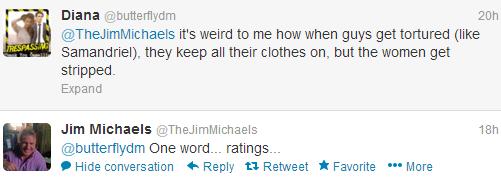 Even when they’re alive, the way female characters are treated by the narrative is often vastly different than that of their male counterparts. Violence against female characters is sexualized in a way it rarely is against male characters: women are sexually assaulted, or are stripped for torture in a way we never see the men, even at the hands of the same antagonists. The creators of Supernatural often seem to default to the male gaze, and they prioritize male-centered stories at the expense of the treatment of the female characters they create.
Even when they’re alive, the way female characters are treated by the narrative is often vastly different than that of their male counterparts. Violence against female characters is sexualized in a way it rarely is against male characters: women are sexually assaulted, or are stripped for torture in a way we never see the men, even at the hands of the same antagonists. The creators of Supernatural often seem to default to the male gaze, and they prioritize male-centered stories at the expense of the treatment of the female characters they create.
This has nothing to do with characters being moral or immoral, nor is it about elevating the abuse of women above other abuses depicted within Supernatural. It’s not (always) about whether characters had a reason, or if they would or wouldn’t behave in a certain way. It can be hard to have these discussions in the Supernatural fandom, because after ten years of relating to the characters and immersing in this world, we sometimes ascribe the characters motives and agency that they don’t have. In the end, all of these decisions are made by writers and directors, and made to distribute to a broad audience.
Whether a story is made for pure entertainment value, or made to convey a specific issue or struggle, all art contributes to people’s understanding of the universe. All media has an impact on the people who engage it—intentional and unintentional. Scrutiny of sexist, racist, heteronormative, ageist, ableist, and other biased or discriminatory themes within a work is both necessary and important, especially when the show itself fails to contextualize it. By unquestioningly accepting these story aspects, we can end up perpetuating the societal issues they represent.
While Supernatural’s showrunners have blamed audience reaction for the deaths of female characters in the past, the tone within the majority of the fandom has changed over the past decade and Supernatural seems to know it. The AskSupernatural social media hashtag was hijacked by disgruntled fans, many demanding less misogynistic treatment of women, and the issue has been the subject of news articles and a regular discussion within the fandom. In the run-up to the tenth season the showrunners touted their female-focused stories, such as the team up between Jody and Donna and the return of Claire Novak, in answer to the demand for better treatment of women within Supernatural.
It’s not just fans that have questioned Supernatural’s sexist and, at times, outright misogynist themes. Genevieve Padalecki (nee Cortese) relayed how uncomfortable she was being strapped down nearly naked for her Season 4 torture scene, and how Julie McNiven helped cover her between takes and wipe up fake blood up when it trickled into sensitive areas. Rachel Miner said she knew she’d be killed off because she was a demon and a chick. Misha Collins called the show gratuitously misogynistic, asking if they really had to use gender slurs and kill all the female characters. Alaina Huffman discussed how Supernatural had Abaddon stabbed, her head cut off, shot her, called her sexist names, and when she asked if they could do that was told, “It’s okay, because she’s a monster.” Robbie Thompson said he begged the showrunners not to kill Charlie, offering alternatives, and Felicia Day said she could spend all day poking holes in the plotline that had Charlie killed, because what was the worst they could do–fire her? As of this past weekend, Jensen Ackles has weighed in as well, saying that Charlie’s death was completely unnecessary and that he called Bob Singer when he read the script and objected to it himself.
So why did they kill Charlie, who was only recently added to officially licensed merchandise, who was the character that was called a tribute to the fans, and who they joked (given her sexuality) would be the exception to the rule that all women must die, especially love interests? We’re told that they were simply following the story, but it seems that the sole purpose of Charlie’s death was to send Dean off the deep end–something that, according to the characters, has been in motion since the very first episode of the season. Charlie’s shock-value death took place at the end an episode riddled with poor writing and a lack of consistency, but is really the latest in a long history of abuse of female characters.
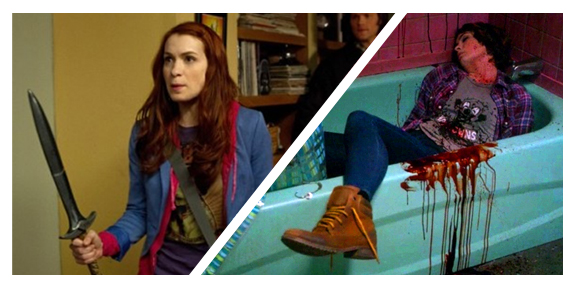 Charlie Bradbury: Inadvertently causes the death of her father and comatose state of her mother as a child, personal motivation is ensuring her mother’s care. Used by Dick Roman to hack a hard drive for information necessary to hunt down Sam and Dean, becomes a reluctant ally to the Winchesters, her arm broken in the process. Abducted by a roleplayer who wants to be her ‘king,’ strikes up romantic relationship with the fairy who is the source of his power, freeing her from captivity. Attacked and captured by a djinn, who plays on the guilt she feels from her mother’s fate, and she chooses to remove her mother from life support. Killed defending Dean from the Wicked Witch of Oz, resurrected by Gadreel, leaves for Oz with Dorothy. Returns from Oz split into two aspects of her personality, the highly sexualized “bad” aspect still seeking revenge for her parents. Charlie is brutally beaten and nearly killed by Dean who is under the power of the Mark of Cain, and then hunted and shot by new villains the Stynes for stealing the Book of the Damned to save Dean. Leaves a protected space without justifiable reason, returning her to being a target of the Stynes. Eventually killed by a one-armed Styne who she had previously bested, and dumped into a bathtub in order to act as a source of guilt for Sam and rage for Dean. The Stynes are subsequently all killed, indicating their presence was entirely built around hunting and killing Charlie and then being the outlet for Dean’s rage.
Charlie Bradbury: Inadvertently causes the death of her father and comatose state of her mother as a child, personal motivation is ensuring her mother’s care. Used by Dick Roman to hack a hard drive for information necessary to hunt down Sam and Dean, becomes a reluctant ally to the Winchesters, her arm broken in the process. Abducted by a roleplayer who wants to be her ‘king,’ strikes up romantic relationship with the fairy who is the source of his power, freeing her from captivity. Attacked and captured by a djinn, who plays on the guilt she feels from her mother’s fate, and she chooses to remove her mother from life support. Killed defending Dean from the Wicked Witch of Oz, resurrected by Gadreel, leaves for Oz with Dorothy. Returns from Oz split into two aspects of her personality, the highly sexualized “bad” aspect still seeking revenge for her parents. Charlie is brutally beaten and nearly killed by Dean who is under the power of the Mark of Cain, and then hunted and shot by new villains the Stynes for stealing the Book of the Damned to save Dean. Leaves a protected space without justifiable reason, returning her to being a target of the Stynes. Eventually killed by a one-armed Styne who she had previously bested, and dumped into a bathtub in order to act as a source of guilt for Sam and rage for Dean. The Stynes are subsequently all killed, indicating their presence was entirely built around hunting and killing Charlie and then being the outlet for Dean’s rage.
“Yeah well, Chucky? She got what she deserved. Wanna know how I did her? It’s kind of a funny story…” – The Prisoner
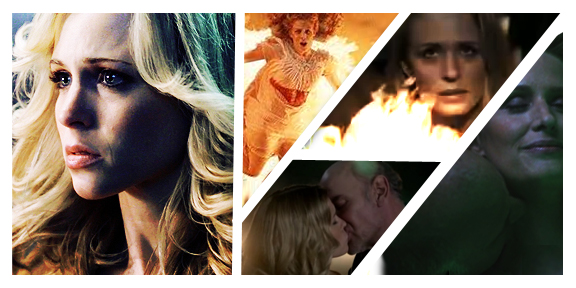 Mary Winchester: Fridged in pilot episode. Disemboweled and burned alive as motivation for John Winchester to raise Sam and Dean as hunters. Brought back as a spirit, then destroyed protecting Sam and Dean. Death contextualized years later as due to a demon deal made to save John, allowing Azazel access to Sam. Twice given warnings to keep her alive, memory wiped to ensure she would die as intended. Later revealed that a cupid arranged her attraction to John, essentially Heaven using her for her reproductive capabilities and then discarding her for her children’s motivation. Portrayed by Zachariah in Heaven as a sex object in order to manipulate the Winchesters. Image later used by Eve in order to manipulate the Winchesters.
Mary Winchester: Fridged in pilot episode. Disemboweled and burned alive as motivation for John Winchester to raise Sam and Dean as hunters. Brought back as a spirit, then destroyed protecting Sam and Dean. Death contextualized years later as due to a demon deal made to save John, allowing Azazel access to Sam. Twice given warnings to keep her alive, memory wiped to ensure she would die as intended. Later revealed that a cupid arranged her attraction to John, essentially Heaven using her for her reproductive capabilities and then discarding her for her children’s motivation. Portrayed by Zachariah in Heaven as a sex object in order to manipulate the Winchesters. Image later used by Eve in order to manipulate the Winchesters.
“I have actually grown quite fond of your mother. Or at least the Blessed Memory of her. I think we’re going to be logging a lot of quality time together. I’ve discovered she’s quite the… MILF.” – Dark Side of the Moon
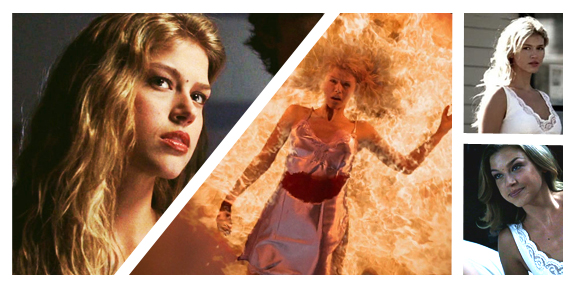 Jessica Moore: Fridged in pilot episode. Disemboweled and burned alive to motivate Sam’s return to hunting. Shown as a memory/spirit to further Sam’s pain. It’s revealed that Sam had premonitions of her death, but left with Dean regardless. It’s later discovered that Jessica was introduced to Sam by Brady for the sole purpose of getting him attached, and then murdering her in the same way Mary died. Image used by Lucifer to tempt Sam to say yes to being Lucifer’s vessel.
Jessica Moore: Fridged in pilot episode. Disemboweled and burned alive to motivate Sam’s return to hunting. Shown as a memory/spirit to further Sam’s pain. It’s revealed that Sam had premonitions of her death, but left with Dean regardless. It’s later discovered that Jessica was introduced to Sam by Brady for the sole purpose of getting him attached, and then murdering her in the same way Mary died. Image used by Lucifer to tempt Sam to say yes to being Lucifer’s vessel.
“You were becoming a mild-mannered, worthless sack of piss. Now, come on. We couldn’t have that. You were our favorite. So I hooked you up with a pure, sweet, innocent piece of tail. And then I toasted her on the ceiling. That’s right — Azazel might have put the hit out on Jessica, but, man, I got to have all the fun!” – The Devil You Know
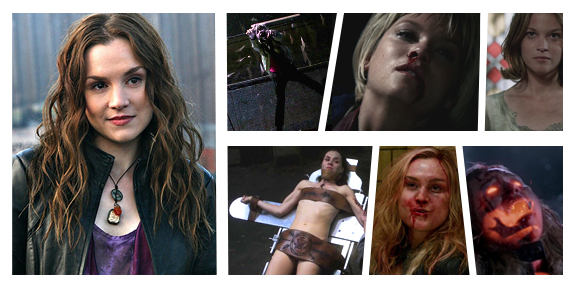 Meg Masters: Thrown out a window, fatally injuring her vessel–by exorcising the demon, the Winchesters knowingly kill the real Meg Masters. Meg returns as a spirit and reveals that after they found her body, her sister committed suicide. Captured and tortured by Christian Campbell in a highly sexualized display, including implied sexual assault with an angel blade as the method. This torture on behalf of the Winchesters is used as a partial redemptive method within the story, putting her ‘on their side’ for the remainder of her arc. Abducted by Crowley while helping the Winchesters. Implied torture and sexual assault by Crowley for years as a prisoner. Portrayed as a potential love interest for Castiel, and then killed covering his escape from Crowley.
Meg Masters: Thrown out a window, fatally injuring her vessel–by exorcising the demon, the Winchesters knowingly kill the real Meg Masters. Meg returns as a spirit and reveals that after they found her body, her sister committed suicide. Captured and tortured by Christian Campbell in a highly sexualized display, including implied sexual assault with an angel blade as the method. This torture on behalf of the Winchesters is used as a partial redemptive method within the story, putting her ‘on their side’ for the remainder of her arc. Abducted by Crowley while helping the Winchesters. Implied torture and sexual assault by Crowley for years as a prisoner. Portrayed as a potential love interest for Castiel, and then killed covering his escape from Crowley.
“There’s my whore.” – Goodbye Stranger
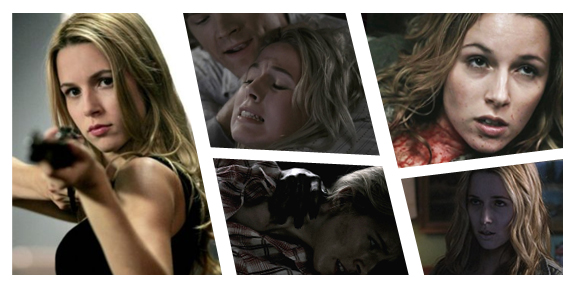 Jo Harvelle: Abducted by evil spirit, imprisoned, groped, and nearly suffocated prior to being rescued, used as bait to lure the spirit out again. Attempted sexual assault by Sam when he was possessed by the demon Meg, bound, gagged, and used as bait to draw Dean in. Mauled by hellhounds, suggests using herself as bait for the hounds to let the Winchesters live, in order to use the Colt on Lucifer. Last night on earth speech and final kiss reestablish her as a romantic interest for Dean in her dying episode, in order to further use her death for emotional pain. Dies in her mother’s arms before the explosion that would kill the hounds, and the plan they died for failed as the Colt cannot kill Lucifer. Brought back to life in an alternate timeline where a twist of fate from the Titanic not sinking meant she survived. Her life, and Ellen’s, are the trade-off for righting the timeline. Brought back as a spirit to absolve Dean of his guilt over her death, and then compelled to attempt to kill Dean in the manner in which she died. Creators blamed audience sexism for her death, as she was originally introduced to be a potential love interest.
Jo Harvelle: Abducted by evil spirit, imprisoned, groped, and nearly suffocated prior to being rescued, used as bait to lure the spirit out again. Attempted sexual assault by Sam when he was possessed by the demon Meg, bound, gagged, and used as bait to draw Dean in. Mauled by hellhounds, suggests using herself as bait for the hounds to let the Winchesters live, in order to use the Colt on Lucifer. Last night on earth speech and final kiss reestablish her as a romantic interest for Dean in her dying episode, in order to further use her death for emotional pain. Dies in her mother’s arms before the explosion that would kill the hounds, and the plan they died for failed as the Colt cannot kill Lucifer. Brought back to life in an alternate timeline where a twist of fate from the Titanic not sinking meant she survived. Her life, and Ellen’s, are the trade-off for righting the timeline. Brought back as a spirit to absolve Dean of his guilt over her death, and then compelled to attempt to kill Dean in the manner in which she died. Creators blamed audience sexism for her death, as she was originally introduced to be a potential love interest.
“But — romance, that’s just out of the question. He kind of thinks you’re a schoolgirl, you know? I’m not trying to hurt you, Jo, I’m telling you ’cause I care. I mean it. I care about you a lot. I can be more to you, Jo.” – Born Under a Bad Sign
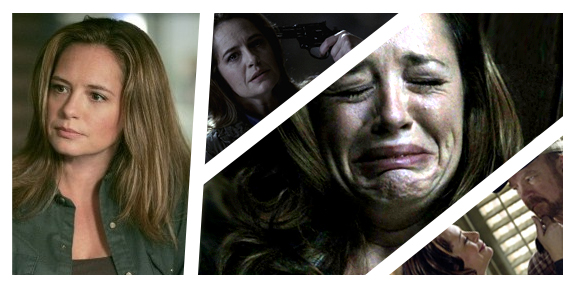 Ellen Harvelle: Assumed dead when the Roadhouse burns down. Arrives at Bobby’s expressing survivor’s guilt that she was the only one to live. Mind-controlled by Jake to hold herself hostage with a gun to her head, to threaten Sam, Dean, and Bobby. Dies alongside Jo in the hardware store, blowing up Meg’s hellhounds to allow the Winchesters to get to Lucifer, though the plan they died for failed as the Colt cannot kill Lucifer. Brought back to life as Bobby’s wife in an alternate timeline where a twist of fate from the Titanic not sinking meant she survived. Her life, and Jo’s, are the trade-off for righting the timeline. Her role in the episode is to absolve them of their guilt over her death as fated, and to be the sacrifice when they fix the timeline.
Ellen Harvelle: Assumed dead when the Roadhouse burns down. Arrives at Bobby’s expressing survivor’s guilt that she was the only one to live. Mind-controlled by Jake to hold herself hostage with a gun to her head, to threaten Sam, Dean, and Bobby. Dies alongside Jo in the hardware store, blowing up Meg’s hellhounds to allow the Winchesters to get to Lucifer, though the plan they died for failed as the Colt cannot kill Lucifer. Brought back to life as Bobby’s wife in an alternate timeline where a twist of fate from the Titanic not sinking meant she survived. Her life, and Jo’s, are the trade-off for righting the timeline. Her role in the episode is to absolve them of their guilt over her death as fated, and to be the sacrifice when they fix the timeline.
“Yes, they’re supposed to be dead. You see, I save a boat, one thing leads to another, which leads to another thousand things, and yada, yada, yada. To cut a long story short, they don’t die in a massive explosion. Anyway, let’s agree I did a good thing. One less Billy Zane movie and I saved two of your closest friends.” – My Heart Will Go On
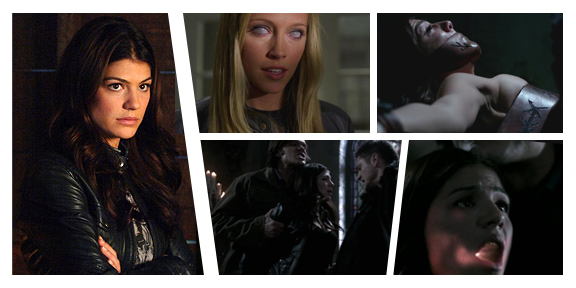 Ruby: Manipulates Sam into learning more about his destiny, and lies saying she can help get Dean out of his demon deal. Portrayed as an unlikely ally to Sam in season 3, then ejected from her host by Lilith. Tortured in Hell. Returns to act as evil demon seductress in season 4, beginning a sexual relationship with Sam and addicting him to her blood, encouraging him to use his powers so that he would become reliant upon her. Subjected to highly sexualized torture as part of Sam’s plan to pit the angels and demons against each other. Manipulates Sam into killing Lilith, thus breaking the final seal. Restrained by Sam and stabbed by Dean.
Ruby: Manipulates Sam into learning more about his destiny, and lies saying she can help get Dean out of his demon deal. Portrayed as an unlikely ally to Sam in season 3, then ejected from her host by Lilith. Tortured in Hell. Returns to act as evil demon seductress in season 4, beginning a sexual relationship with Sam and addicting him to her blood, encouraging him to use his powers so that he would become reliant upon her. Subjected to highly sexualized torture as part of Sam’s plan to pit the angels and demons against each other. Manipulates Sam into killing Lilith, thus breaking the final seal. Restrained by Sam and stabbed by Dean.
“You know…I’d always heard that you were a devious, cowardly little slut. You don’t disappoint.” – Heaven and Hell
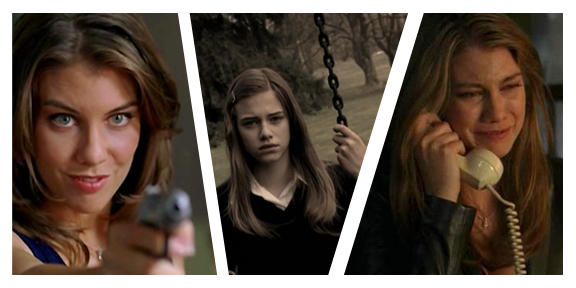 Bela Talbot: Implied sexual abuse by her father as a child, and sells her soul to kill her parents in order to escape the abuse. Her past abuse is used to humanize the character in her final episode, and ensure an emotional reaction to her death. Dean mocks her death as karmic punishment for her actions against them, just prior to her deal coming due. Killed by Hellhounds and dragged to hell, left in the fridge despite male character in same situation being defrosted. Creators blamed audience sexism for her death, as she was originally introduced to be a potential love interest.
Bela Talbot: Implied sexual abuse by her father as a child, and sells her soul to kill her parents in order to escape the abuse. Her past abuse is used to humanize the character in her final episode, and ensure an emotional reaction to her death. Dean mocks her death as karmic punishment for her actions against them, just prior to her deal coming due. Killed by Hellhounds and dragged to hell, left in the fridge despite male character in same situation being defrosted. Creators blamed audience sexism for her death, as she was originally introduced to be a potential love interest.
“Hey, Bela, how’d you get like this, huh? What, did Daddy not give you enough hugs or something?” – Red Sky At Morning
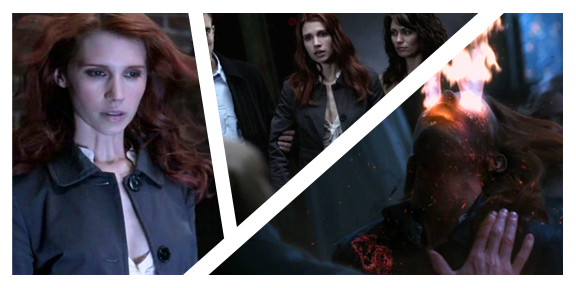 Anna Milton: Institutionalized for trying to warn about the impending Apocalypse. Sentenced to death for disobedience, and choosing to fall from heaven and live as a human. Uriel demands that Anna be returned, or Dean will go back to Hell and Sam will be killed. Shunned by other angels once her grace is returned, and taken captive by Heaven and tortured. Returns intending to kill Sam Winchester and fails, travels back in time to try and stop them being born and is killed by Michael (using John Winchester as a vessel) for attempting to interfere with Heaven’s plans for the Winchester brothers in the Apocalypse.
Anna Milton: Institutionalized for trying to warn about the impending Apocalypse. Sentenced to death for disobedience, and choosing to fall from heaven and live as a human. Uriel demands that Anna be returned, or Dean will go back to Hell and Sam will be killed. Shunned by other angels once her grace is returned, and taken captive by Heaven and tortured. Returns intending to kill Sam Winchester and fails, travels back in time to try and stop them being born and is killed by Michael (using John Winchester as a vessel) for attempting to interfere with Heaven’s plans for the Winchester brothers in the Apocalypse.
“So she’s gone all Glenn Close, huh? That’s awesome.” “Who’s Glenn Close?” “No one. Just this psycho bitch that likes to boil rabbits.” – The Song Remains The Same
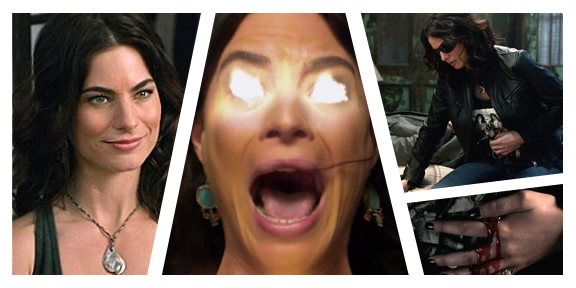 Pamela Barnes: Eyes burned out by looking at Castiel’s true form. Stabbed by a demon while looking over Sam and Dean, and left to an extended death scene until reapers are reinstated. Uses dying breaths to curse Bobby Singer for ever introducing her to the Winchesters, and to warn Sam not to use his demon powers. Later shown in Heaven absolving the Winchesters of their role in her death, as Heaven is better, and to encourage Dean to consider saying yes to being Michael’s vessel.
Pamela Barnes: Eyes burned out by looking at Castiel’s true form. Stabbed by a demon while looking over Sam and Dean, and left to an extended death scene until reapers are reinstated. Uses dying breaths to curse Bobby Singer for ever introducing her to the Winchesters, and to warn Sam not to use his demon powers. Later shown in Heaven absolving the Winchesters of their role in her death, as Heaven is better, and to encourage Dean to consider saying yes to being Michael’s vessel.
“Pamela. You know, psychic Pamela? You remember her. Cas, you remember her. You burned her eyes out. Remember that? Good times. Yeah, then she died saving one of your precious seals.” -On The Head of a Pin
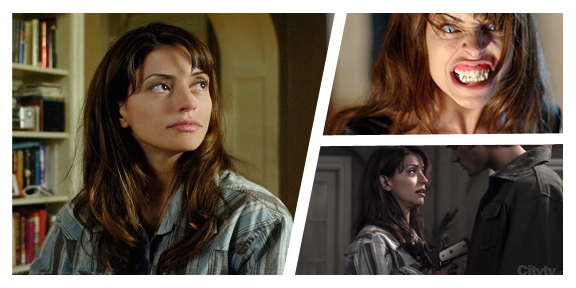 Madison: Stalked by ex-boyfriend. Bitten by werewolf who viewed her as a potential sexual partner. Had no memory of her own violent acts as a werewolf. Killed by Sam Winchester rather than live as a monster, with Sam and Dean’s grief the narrative purpose of her life and death. Mentioned in “It’s a Terrible Life” as Sam’s ex-fiance, with her number going to an animal shelter (reducing the character’s death to an in-joke). Called “the first woman since Jessica that Sam ever loved” in Chuck’s novels, with female fan effusively purporting that the books/stories are best when the men cry, as Sam did over Madison.
Madison: Stalked by ex-boyfriend. Bitten by werewolf who viewed her as a potential sexual partner. Had no memory of her own violent acts as a werewolf. Killed by Sam Winchester rather than live as a monster, with Sam and Dean’s grief the narrative purpose of her life and death. Mentioned in “It’s a Terrible Life” as Sam’s ex-fiance, with her number going to an animal shelter (reducing the character’s death to an in-joke). Called “the first woman since Jessica that Sam ever loved” in Chuck’s novels, with female fan effusively purporting that the books/stories are best when the men cry, as Sam did over Madison.
“Maybe he was looking for a little, uh, hot breeding action.” – Heart
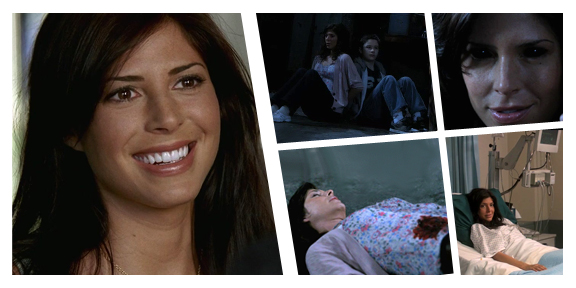 Lisa Braeden: Abducted, along with her child, and demonically possessed to get to Dean. Forced to hurt her son and fatally stab herself while possessed. Healed by Castiel, and memories erased and altered without her consent, turning her into an emotional death/sacrifice for Dean.
Lisa Braeden: Abducted, along with her child, and demonically possessed to get to Dean. Forced to hurt her son and fatally stab herself while possessed. Healed by Castiel, and memories erased and altered without her consent, turning her into an emotional death/sacrifice for Dean.
“What? I was just gonna tell him that you’re his real daddy. Just kidding. Who knows who your real dad is, kid? Your mom’s a slut.” – Let It Bleed
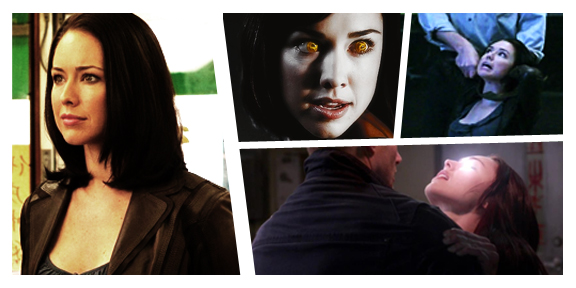 Tessa: Possessed by Azazel. Abducted and nearly killed by Alastair. Brainwashed by Metatron into becoming a suicide bomber. Threatened with torture by Dean, instead committed suicide by impaling herself on the First Blade in Dean’s hand, to cause drama for male characters, an inadvertently assisted suicide to show how dark the storyline is/how powerful a villain.
Tessa: Possessed by Azazel. Abducted and nearly killed by Alastair. Brainwashed by Metatron into becoming a suicide bomber. Threatened with torture by Dean, instead committed suicide by impaling herself on the First Blade in Dean’s hand, to cause drama for male characters, an inadvertently assisted suicide to show how dark the storyline is/how powerful a villain.
“I recruited them, and you brainwashed them into blowing themselves up.” “So?” – Stairway to Heaven
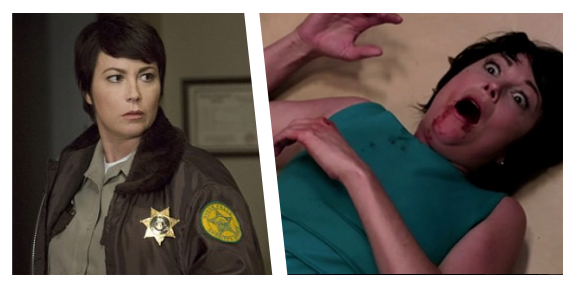 Jody Mills: Sees her son, returned from the dead, turn zombie and eat her husband before being shot by Sam. Drugged by Leviathan posing as a doctor, escapes with Bobby’s help. Targeted by Crowley, who brings her on a date and brings up her past losses to agitate her. Leaves to the bathroom to contemplate Crowley’s attractiveness. Crowley hexes her in the other room and uses her as a bargaining chip against Sam and Dean. Jody collapses, choking and coughing up blood, on the bathroom floor, as a dying hostage that forces Sam and Dean to surrender. Her status is left uncertain after Crowley’s capture until partway through the next season.
Jody Mills: Sees her son, returned from the dead, turn zombie and eat her husband before being shot by Sam. Drugged by Leviathan posing as a doctor, escapes with Bobby’s help. Targeted by Crowley, who brings her on a date and brings up her past losses to agitate her. Leaves to the bathroom to contemplate Crowley’s attractiveness. Crowley hexes her in the other room and uses her as a bargaining chip against Sam and Dean. Jody collapses, choking and coughing up blood, on the bathroom floor, as a dying hostage that forces Sam and Dean to surrender. Her status is left uncertain after Crowley’s capture until partway through the next season.
“You have less than one minute before a very dear, attractive, and slightly tipsy friend of yours snuffs it.” – Sacrifice
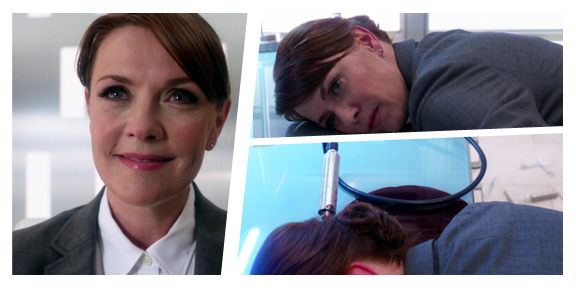 Naomi: Portrayed as the manipulative leader of the “CIA Angels,” reprogramming angels who she considers to have gone off-mission, and sending Castiel as a sleeper agent and spy on the Winchesters. Determined to protect the angel tablet, brainwashing Castiel into being prepared to kill Dean. Implied past sexual relationship with Crowley. Redemptive speech in her final episode, attempting to save Sam and reconcile with Castiel, warning the Winchesters of Metatron’s plan to make Heaven fall. Killed in Heaven by Metatron with no sign of struggle by a drill through the back of her head.
Naomi: Portrayed as the manipulative leader of the “CIA Angels,” reprogramming angels who she considers to have gone off-mission, and sending Castiel as a sleeper agent and spy on the Winchesters. Determined to protect the angel tablet, brainwashing Castiel into being prepared to kill Dean. Implied past sexual relationship with Crowley. Redemptive speech in her final episode, attempting to save Sam and reconcile with Castiel, warning the Winchesters of Metatron’s plan to make Heaven fall. Killed in Heaven by Metatron with no sign of struggle by a drill through the back of her head.
“She told you I lied, didn’t she? You should’ve listened to the bitch.” – Sacrifice
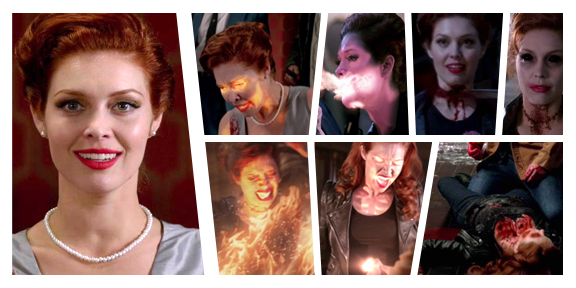 Abaddon/Josie Sands: Introduced as Josie, a Woman of Letters. Possessed by Abaddon in place of Henry Winchester, a married man who was her unrequited love, and used as a spy to dismantle the Men of Letters. Stabbed, shot in the head, decapitated and dismembered on-screen in first appearance. Abaddon is reassembled and escapes. Doused with Holy Fire and killed. Resurrected in the nude. Backstory reduces her early motivations to scorned former lover of Cain, murdering Colette to punish him for leaving her for a human. Eventually stabbed and killed with the First Blade, and Dean then brutally continues stabbing her long after she is dead in order to demonstrate the violent effects of the Mark of Cain.
Abaddon/Josie Sands: Introduced as Josie, a Woman of Letters. Possessed by Abaddon in place of Henry Winchester, a married man who was her unrequited love, and used as a spy to dismantle the Men of Letters. Stabbed, shot in the head, decapitated and dismembered on-screen in first appearance. Abaddon is reassembled and escapes. Doused with Holy Fire and killed. Resurrected in the nude. Backstory reduces her early motivations to scorned former lover of Cain, murdering Colette to punish him for leaving her for a human. Eventually stabbed and killed with the First Blade, and Dean then brutally continues stabbing her long after she is dead in order to demonstrate the violent effects of the Mark of Cain.
“Abaddon giving you trouble, eh? Tell you what, you let me go, and I’ll spit-roast the little whore for you. Sound good?” – Devil May Care
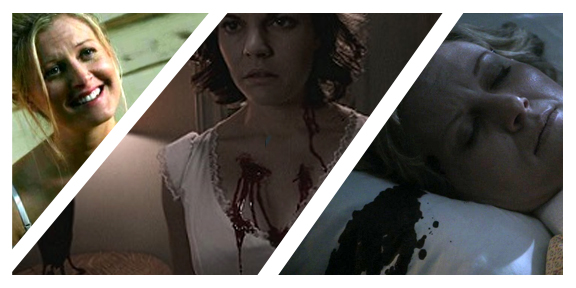 Karen Singer: Possessed by a demon and repeatedly stabbed by Bobby Singer, who was unaware that she was still alive and conscious as the demon had control. When the demon was exorcised by a more experienced hunter, the injuries from the stabbing left Karen dead. This becomes Bobby’s motivation to be a hunter. Brought back from the dead during the Apocalypse, and begins exhibiting signs of weakness prior to turning into a zombie, begging Bobby to kill her. Was only raised to give Bobby a message to stop helping the Winchesters avoid their role in the Apocalypse, and acted as an assisted suicide to show how dark the storyline is/how powerful a villain. Used both in a dream root vision and dying memories as source of Bobby’s motivation and guilt.
Karen Singer: Possessed by a demon and repeatedly stabbed by Bobby Singer, who was unaware that she was still alive and conscious as the demon had control. When the demon was exorcised by a more experienced hunter, the injuries from the stabbing left Karen dead. This becomes Bobby’s motivation to be a hunter. Brought back from the dead during the Apocalypse, and begins exhibiting signs of weakness prior to turning into a zombie, begging Bobby to kill her. Was only raised to give Bobby a message to stop helping the Winchesters avoid their role in the Apocalypse, and acted as an assisted suicide to show how dark the storyline is/how powerful a villain. Used both in a dream root vision and dying memories as source of Bobby’s motivation and guilt.
“You were possessed, baby. You were rabid. And I didn’t know what I know now. I didn’t know how to save you.” – Dream a Little Dream
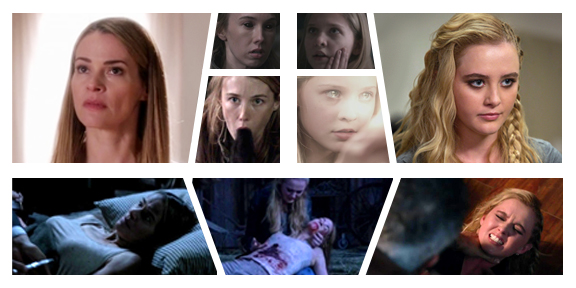 Amelia and Claire Novak: Amelia possessed by demon and made to abduct and hurt her daughter and shoot her husband, exorcised by Sam. Claire held at knifepoint by her neighbor and then abducted and threatened with death by her mother, used as a vessel by Castiel, until Jimmy sacrifices himself to let her go. Amelia goes searching for Jimmy and is abducted and has her soul and blood used as an endless food source. Claire is taken in by an abusive surrogate father figure who uses her to commit crimes for him, and then is sold into prostitution, sexually assaulted, and rescued by Castiel. Claire goes on to search for her mother, who is rescued from captivity only to die in her daughter’s arms.
Amelia and Claire Novak: Amelia possessed by demon and made to abduct and hurt her daughter and shoot her husband, exorcised by Sam. Claire held at knifepoint by her neighbor and then abducted and threatened with death by her mother, used as a vessel by Castiel, until Jimmy sacrifices himself to let her go. Amelia goes searching for Jimmy and is abducted and has her soul and blood used as an endless food source. Claire is taken in by an abusive surrogate father figure who uses her to commit crimes for him, and then is sold into prostitution, sexually assaulted, and rescued by Castiel. Claire goes on to search for her mother, who is rescued from captivity only to die in her daughter’s arms.
“Why is he leaving again?” “Because it’s just not my day, is it? You little bitch.” – The Rapture
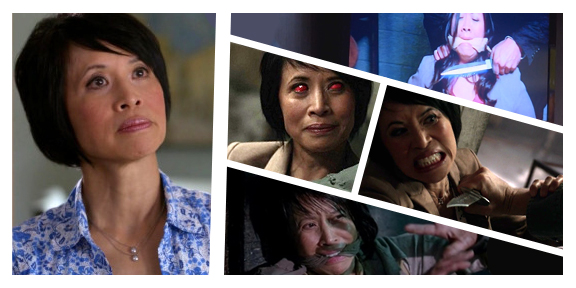 Linda Tran: Kidnapped by Dick Roman/Leviathans and threatened to ensure Kevin’s cooperation. Kept under demonic watch/unknowing captivity with neighbors possessed and keeping an eye out for Kevin. Racial slurs about mail-order bride. Possessed by Crowley, almost killed by Dean who saw her death as acceptable to beat the demon. Captured by Crowley, who claims he tortured and killed her for Kevin’s address. Resurfaces being held captive and tortured in a storage facility by Crowley’s demons.
Linda Tran: Kidnapped by Dick Roman/Leviathans and threatened to ensure Kevin’s cooperation. Kept under demonic watch/unknowing captivity with neighbors possessed and keeping an eye out for Kevin. Racial slurs about mail-order bride. Possessed by Crowley, almost killed by Dean who saw her death as acceptable to beat the demon. Captured by Crowley, who claims he tortured and killed her for Kevin’s address. Resurfaces being held captive and tortured in a storage facility by Crowley’s demons.
“Charming. Defiling her corpse has just made number one on my to-do list.” – What’s Up, Tiger Mommy?
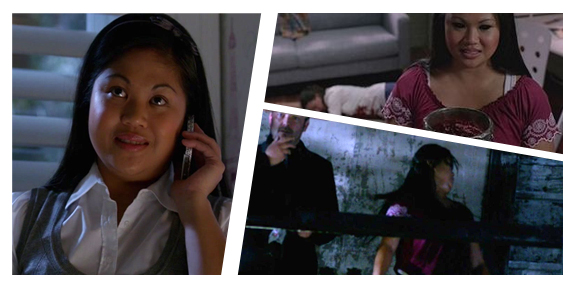 Channing Ngo: Fridged for Kevin’s pain. Long-term demonic possession to use her as a spy for Crowley, looking for Kevin. Used to murder roommate. Treated as disposable woman and a hostage, unaware of what was happening but called to consciousness to prove she was still alive. When Kevin escapes, Crowley callously tells his demon to find a new host, and then snaps Channing’s neck as Kevin escapes in the Impala, a shot done in slow motion with the focus on Kevin’s reaction.
Channing Ngo: Fridged for Kevin’s pain. Long-term demonic possession to use her as a spy for Crowley, looking for Kevin. Used to murder roommate. Treated as disposable woman and a hostage, unaware of what was happening but called to consciousness to prove she was still alive. When Kevin escapes, Crowley callously tells his demon to find a new host, and then snaps Channing’s neck as Kevin escapes in the Impala, a shot done in slow motion with the focus on Kevin’s reaction.
“Find another meatsuit.” – We Need To Talk About Kevin
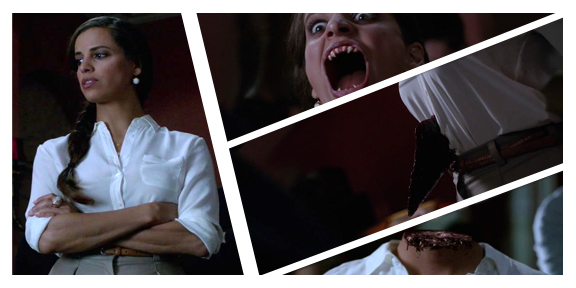 Andrea Kormos: Serves as Benny’s backstory. He falls in love with a human woman and runs away with her, and is found by his maker, who kills Benny (sending him to Purgatory), and rips Andrea’s throat out. Revenging Andrea is his motivation to return to Earth, where he and Dean find Andrea alive and a vampire, coerced into a sexual relationship with the maker, who turned her just to take something that was Benny’s. She encourages Benny to kill the maker. When she tries to encourage Benny to stay and run the operation with her, he declares that the woman he loved is already dead. Andrea is stabbed and beheaded by Dean.
Andrea Kormos: Serves as Benny’s backstory. He falls in love with a human woman and runs away with her, and is found by his maker, who kills Benny (sending him to Purgatory), and rips Andrea’s throat out. Revenging Andrea is his motivation to return to Earth, where he and Dean find Andrea alive and a vampire, coerced into a sexual relationship with the maker, who turned her just to take something that was Benny’s. She encourages Benny to kill the maker. When she tries to encourage Benny to stay and run the operation with her, he declares that the woman he loved is already dead. Andrea is stabbed and beheaded by Dean.
“Yes, father. That’s when you decided to turn his cow.” – Blood Brother
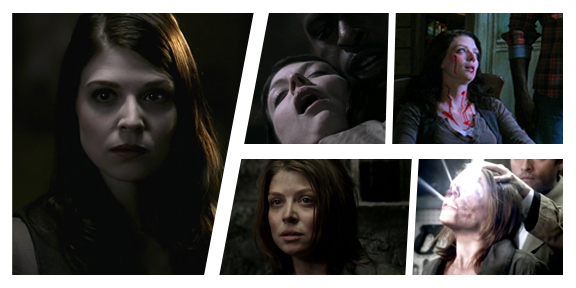 Lenore: Gordon Walker, hunting out of revenge for his sister who was turned by vampires, finds Lenore’s nonviolent group of vampires and has begun murdering them. Lenore seeks out the Winchesters for help, and is later stabbed and abducted by Gordon, who tortures her with a blade dipped in dead man’s blood to make her reveal where the other nonviolent vampires are. She’s rescued by Sam and Dean, and proves her unwillingness to drink human blood, and she escapes to find a new home. When Castiel states he is unable to find Eve, the Winchesters send him to find a sympathetic monster. He brings Lenore back with him, who gives them Eve’s location and then begs to be killed, because she is mind controlling even Lenore and the non-violent monsters into killing humans. Castiel smites Lenore per her request, an assisted suicide to show how dark the storyline is/how powerful a villain.
Lenore: Gordon Walker, hunting out of revenge for his sister who was turned by vampires, finds Lenore’s nonviolent group of vampires and has begun murdering them. Lenore seeks out the Winchesters for help, and is later stabbed and abducted by Gordon, who tortures her with a blade dipped in dead man’s blood to make her reveal where the other nonviolent vampires are. She’s rescued by Sam and Dean, and proves her unwillingness to drink human blood, and she escapes to find a new home. When Castiel states he is unable to find Eve, the Winchesters send him to find a sympathetic monster. He brings Lenore back with him, who gives them Eve’s location and then begs to be killed, because she is mind controlling even Lenore and the non-violent monsters into killing humans. Castiel smites Lenore per her request, an assisted suicide to show how dark the storyline is/how powerful a villain.
“You’re right. I’m wasting my time here. This bitch will never talk. Might as well put her out of her misery. I just sharpened it, so it’s completely humane.” – Bloodlust
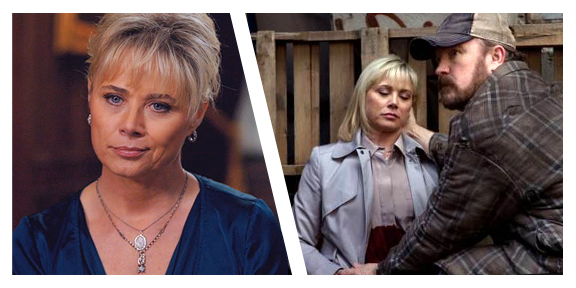 Eleanor Visyak: Introduced as past love interest of Bobby’s who is aware of the Supernatural, and assists the Winchesters in defeating a dragon. Revealed to be a creature from Purgatory who was brought to earth by H.P. Lovecraft and took up a human life and spent decades helping keep Purgatory closed. She is captured and tortured by Crowley and Castiel, looking for a way into Purgatory. She broke and gave the information when Castiel began to torture her. She dies in an alley, killed by a male protagonist to show how dark Castiel had gone.
Eleanor Visyak: Introduced as past love interest of Bobby’s who is aware of the Supernatural, and assists the Winchesters in defeating a dragon. Revealed to be a creature from Purgatory who was brought to earth by H.P. Lovecraft and took up a human life and spent decades helping keep Purgatory closed. She is captured and tortured by Crowley and Castiel, looking for a way into Purgatory. She broke and gave the information when Castiel began to torture her. She dies in an alley, killed by a male protagonist to show how dark Castiel had gone.
“The demon I could’ve handled, but when the angel stepped in, I – I told him, Bobby.” – The Man Who Knew Too Much
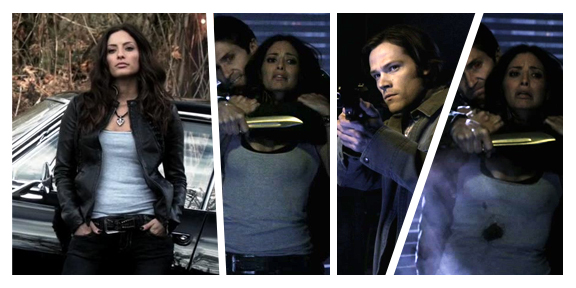 Robin: Acts as a vision and guide to Sam as he begins piecing together the shattered aspects of his soul. She is a bartender who was sympathetic to Sam, and as he reabsorbs the soulless aspect of himself he regains the memory of shooting Robin, who was being held hostage by a monster, to take away his cover and let him get at the monster behind her. Her death serves the narrative purpose of showing how dark Sam had gone while soulless.
Robin: Acts as a vision and guide to Sam as he begins piecing together the shattered aspects of his soul. She is a bartender who was sympathetic to Sam, and as he reabsorbs the soulless aspect of himself he regains the memory of shooting Robin, who was being held hostage by a monster, to take away his cover and let him get at the monster behind her. Her death serves the narrative purpose of showing how dark Sam had gone while soulless.
“There goes your leverage.” – The Man Who Knew Too Much
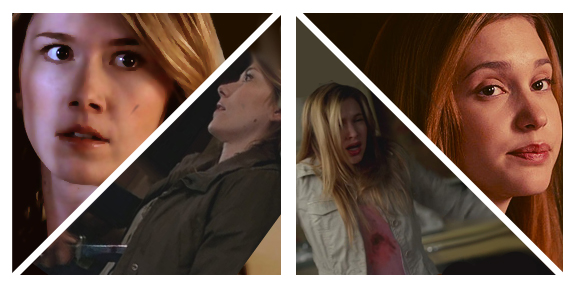 Amy Pond: Meets Sam as a teenager when he interferes with two boys pushing her around. She and Sam bond at her house over cruel parents, and then share a kiss. Her mother returns, reveals they’re the kitsune being hunted by the Winchesters, and then attacks Sam. Amy kills her. Sam and Amy meet again later in life on another hunt, where she is living off of dead bodies, but has to kill three times to save her young son. Sam lets her go, knowing that she will resume being harmless. Dean kills her without letting Sam know, and her young son vows revenge. Emma: Dean has sex with a woman, Lydia, and returns to her house to retrieve a personal effect only to find that she has an infant daughter who is speaking like an adult. Emma is Dean’s child, and grows up within three days, branded and tortured to withstand pain. She is sent to kill Dean as an initiation right, but pleads with him to let her have a normal life. They have difficulty killing each other and Dean offers to let her go. Sam walks in and shoots Emma, relating it back to Dean killing Amy–one death justifying the other.
Amy Pond: Meets Sam as a teenager when he interferes with two boys pushing her around. She and Sam bond at her house over cruel parents, and then share a kiss. Her mother returns, reveals they’re the kitsune being hunted by the Winchesters, and then attacks Sam. Amy kills her. Sam and Amy meet again later in life on another hunt, where she is living off of dead bodies, but has to kill three times to save her young son. Sam lets her go, knowing that she will resume being harmless. Dean kills her without letting Sam know, and her young son vows revenge. Emma: Dean has sex with a woman, Lydia, and returns to her house to retrieve a personal effect only to find that she has an infant daughter who is speaking like an adult. Emma is Dean’s child, and grows up within three days, branded and tortured to withstand pain. She is sent to kill Dean as an initiation right, but pleads with him to let her have a normal life. They have difficulty killing each other and Dean offers to let her go. Sam walks in and shoots Emma, relating it back to Dean killing Amy–one death justifying the other.
“What did you say to me… when I was the one who choked? What did you say about Amy? “You kill the monster!”” – Slice Girls
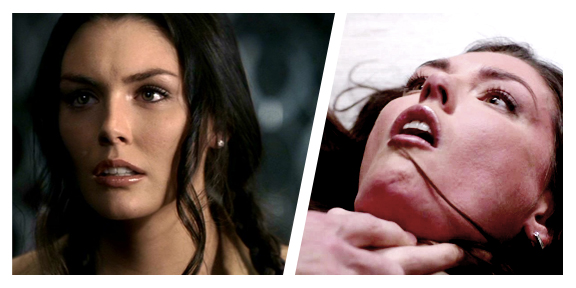 Sarah Blake: Brought back to Die. Bonded on a date over the loss of their mothers. Dean takes a liking to Sarah, and encourages Sam to date her. Survived her Season 1 episode, and was competent and brave in facing the spirit/monster of the week. Fan-favored love interest for Sam, with requests over the years to bring her back. Returns in Season 8 for one episode, discusses her husband and infant child and her fondness for Sam, then is hexed by Crowley to choke to death in front of the Winchesters, as emotional manipulation and blackmail.
Sarah Blake: Brought back to Die. Bonded on a date over the loss of their mothers. Dean takes a liking to Sarah, and encourages Sam to date her. Survived her Season 1 episode, and was competent and brave in facing the spirit/monster of the week. Fan-favored love interest for Sam, with requests over the years to bring her back. Returns in Season 8 for one episode, discusses her husband and infant child and her fondness for Sam, then is hexed by Crowley to choke to death in front of the Winchesters, as emotional manipulation and blackmail.
“Plus, I just thought it seemed fitting. From what I understand, Sammy took that bird’s breath away.” – Clip Show
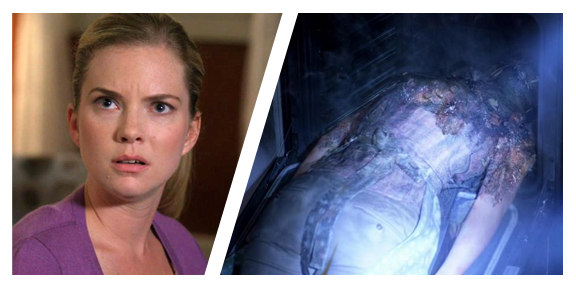
Jenny Klein: Hexed, and begins choking to death on blood before she is rescued by Sam and Dean. Survives the episode, but is brought back seasons later with her head in her oven, one of Crowley’s victims to ensure the brothers surrender.
“Oh, Moosie, isn’t it obvious? I’m killing everyone you’ve ever saved — the damsels in distress, the innocent whippersnappers, the would-be vampire chow — all of them.” – Clip Show
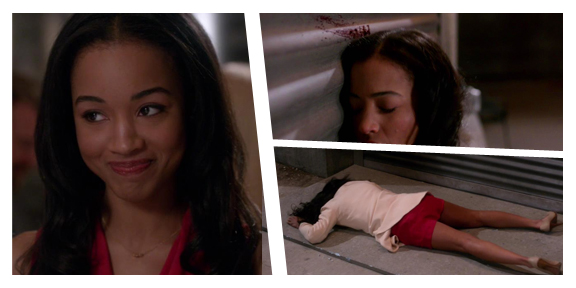 Tamara: The fiancee of Ennis, who was intended to be a lead protagonist of the Bloodlines spinoff of Supernatural. Fridged to motivate Ennis into investigating Supernatural creatures. Had Bloodlines been picked up, it would have also been built on a foundation of women killed for a male character’s motivation.
Tamara: The fiancee of Ennis, who was intended to be a lead protagonist of the Bloodlines spinoff of Supernatural. Fridged to motivate Ennis into investigating Supernatural creatures. Had Bloodlines been picked up, it would have also been built on a foundation of women killed for a male character’s motivation.
“I’m sorry about your girl. But she was in the way. You understand. I know you do. They’re monsters!” – Bloodlines
This list is not intended to be comprehensive, either of all female characters depicted over ten years of Supernatural, or of the entire storyline of the characters shown. The purpose of this list is to examine how female characters are treated within the story, and the troubling patterns within the narrative of Supernatural.
COMMON TROPES FROM SPN/REFERENCES:
Stuffed into the Fridge: http://tvtropes.org/pmwiki/pmwiki.php/Main/StuffedIntoTheFridge
- Women in Refrigerators: https://www.youtube.com/watch?v=DInYaHVSLr8
The Lost Lenore: http://tvtropes.org/pmwiki/pmwiki.php/Main/TheLostLenore
Disposable Woman: http://tvtropes.org/pmwiki/pmwiki.php/Main/DisposableWoman
The Vamp: http://tvtropes.org/pmwiki/pmwiki.php/Main/TheVamp
- Evil Demon Seductress: https://www.youtube.com/watch?v=_VeCjm1UO4M
Cartwright Curse: http://tvtropes.org/pmwiki/pmwiki.php/Main/CartwrightCurse
Back for the Dead http://tvtropes.org/pmwiki/pmwiki.php/Main/BackForTheDead
Author: Exorcising Emily
Emily is one of the first contributors to the Geekiary and helped set the standard for convention Twitter coverage for conventions. She’s been involved with fandom all of her life, especially active in the Firefly, Veronica Mars, and Supernatural fandoms. She’s known for her excitement over tea and the planet Pluto, as well as her activism towards fan led charity events and anti-bullying initiatives.
Help support independent journalism. Subscribe to our Patreon.
Copyright © The Geekiary
Do not copy our content in whole to other websites. If you are reading this anywhere besides TheGeekiary.com, it has been stolen.Read our


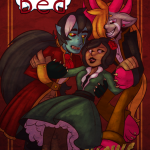


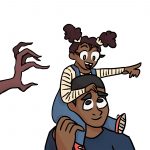
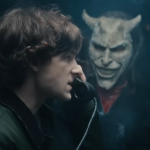
Great article. The list is so long and seeing it here puts women character roles on SPN in perspective. Sadly only 3 of these characters are still alive. At least for now.
Great write up. It’s sad that the show treats its female characters this way, especially when it doesn’t make sense (Charlie’s death).
Good job on this article–your list included many characters I hadn’t thought about in years (which demonstrates just how “disposable” the female characters are to the plot line, so often). Very thought-provoking.
Horror shows about hunting evil things do tend to kill lots of PEOPLE. Funny that.
To quote the article:
“To clarify: the issue isn’t that women die within Supernatural. Everyone dies within Supernatural, including the male characters. The issue is how and why characters die, what the story is telling us with their deaths, and how Supernatural treats them when they are alive. Supernatural treats female characters very differently, and frames their deaths in a very different light than they do male characters.
When a male protagonist dies on Supernatural, if they’re a Winchester or a character significant to the story, they frequently fall under “Dead Men Defrosting” tropes. They come back more powerful, more relevant to the story, more relatable. The way men die is different too: they are most often shown as a heroic sacrifice, a heroic last stand, or they die fighting. When women die on Supernatural, the emphasis is not on their strength, but their weakness, and women can die over and over again, resurrected or shown as a spirit to keep the drama fresh, or to absolve the heroes of their guilt when the time has come. Most protagonists seem to have a tragic backstory involving a brutally murdered woman to send them hunting, and Supernatural is odd in that we’re introduced to these women often after they’re already dead.”
While I completely agree with the overall theme of the article, I want to argue that Jo and Ellen died more like typical male action heroes than the fate of most of the women on Supernatural. I’m not remotely suggesting this balances anything, just that I want Jo and Ellen to be remembered for going out in BadAss fashion. They were heroes to the heroes. I’d like them to be remembered that way.
I’d like them to be remembered that way as well, but within the same episode we see the plan they died to make possible, what was supposed to save the world, fail. And the final focus of the episode is on that failure, and their deaths as pain for Dean, particularly. Then Ellen (and by reference, Jo) is brought back with the Titanic to be the tragic sacrifice to fixing “fate,” and Jo to personify Dean’s guilt killing him. I love Ellen and Jo, and the tragedy and heroism of their death was exceptionally well done. But like many women on SPN, the show doesn’t do well by them after their deaths either.
Many of my favorite characters in comics and media were fridged at some point. They have amazing stories to tell, sometimes even involving the tragedy they’re dealt. I just end up wishing they had been better treated by the writers, and their sacrifices were paid their proper due for the female characters who made them, rather than the men around them.
How about we agree to disagree on this one. To me, they died like old fashion war heroes…you know, the crusty sarge who gets left behind to cover the retreat. I just didn’t see gender remotely involved in these particular deaths.
Now I DO agree that post their deaths, they get the “tragic female” treatment. But the actual deaths, IMO, were world-class action hero status. JMO.
This might get a little long, so bear with me. To me, the fact that the plan was doomed to fail shouldn’t lesson the impact, emotional or other. In my opinion, it actually adds to it. There have been scores of examples of this happening. One off the top of my head is the battle of Gallipoli. The plan was absolutely doomed from the start. Too ambitious, no proper intelligence gather, and severely underestimating the enemy, ensured defeat. The Anzacs didn’t see failing nor did Churchill. They went into battle thinking that this was it, they were going to win. They didn’t but when we look back we see them as brave and heroic. Sam and Dean thought they finally had the chance to end it, as did Jo and Ellen. However that group walking were not dumb (at least not then, Sam and Dean have kind of regressed in their intelligence). Deep down they all knew this wasn’t going to work. But they still went forward. Facing that head on with the willingness to fight is more poignant then facing a battle confident of victory.
You say in the article that when the men die it’s a noble sacrifice, a heroic last stand, or die fighting and that women are killed for their weakness. I don’t agree with that. There are some that die because of that (men as well) but to say women didn’t fight, sacrifice, or take a last stand is not correct. I explained Ellen and Jo but I want to add a few more examples. Madison in Heart went out not weak but strong. In a lot of ways, stronger than the guys. She sacrificed herself to save those she might hurt in the future. Asking Sam to kill her because she couldn’t do it herself wasn’t weak, she didn’t want to die but knew it was the right thing. Pamela could have said no to the guys, she had every right to but she didn’t. She used what made her unique to help them, knowing it put her in danger. She may have not been happy going out but I mean, would you be? Meg sacrificed herself twice. She took on the hell hounds alone so Cas, Sam, and Dean could get to Crowly. She may not have died then but she didn’t know that. The second time was to put herself in Crowlys way and buy them time to get out. She stood in front of the man who tortured her for a year (and dyed her hair) and looked him in the eye. She knew she was down but she did it on her own terms.
I’m still trying to understand why fridging has such a negative context. Humans are social creatures and we develop close bonds. When someone dies that you love you’re going to have a strong emotional response. Those emotions carry with you and impact decisions you make after the death. It makes a doctor who lost a child to cancer, spend their life researching a cure. You could say killing off a character was pointless but 90% of the time death IS pointless. We can only hope to leave a legacy to be carried on by others.
As for supernatural killing characters just to get a reaction from Sam and Dean, that’s a grey area to me. Over the years they have lied and been lied to. They were manipulated by stronger forces. They have literally been to hell and back. At this point death seems to be the only card left that can create enough emotion to move the story forward. You may see more stories for a character to tell but that doesn’t mean the writers do.
It’s not to lesson the impact, or to demean the characters. However, the framing of their death is textbook “Senseless Sacrifice,” and they’re actually listed on the trope page under Live Action TV.
http://tvtropes.org/pmwiki/pmwiki.php/Main/SenselessSacrifice
Basically, the Senseless Sacrifice is the downer version of Heroic Sacrifice. Yes, they follow through on the plan and demonstrate all of the heroic qualities of a Heroic Sacrifice. But the badguy gets away anyway, or the plan they died for was inherently doomed to fail.
Compare to the deaths of Future!Cas, and all of Dean’s Endverse team. They died so that Future!Dean could get in close. Future!Dean never even got a shot off at Lucifer. Future!Cas and all the others were ‘fed into the meat grinder’ anyway. Meanwhile, Future!Dean not getting that shot off meant they didn’t get to find out that the Colt wouldn’t work (which would have made Ellen and Jo’s sacrifice unnecessary as well, because then Present!Dean wouldn’t have hitched his wagon to that plan, and Ellen and Jo wouldn’t have died in that hardware store).
What Ellen and Jo did is, unquestionably, heroic. How Supernatural treated it ultimately, though, was the emphasis on the tragedy of their death when the plan was doomed, and Dean stares into the fire as Jo’s picture is consumed by the flames, their names and images invoked later only to drive home the tragedy.
Does it work in the context? Yes. Abandon All Hope was an excellent episode, and one that actually to this day still HURTS me to watch. I still love Ellen and Jo. However, you still have the claims that Jo was killed off to appease fans demanding her death, Kripke realizing that she didn’t come off as ship material as much as she did little sister, and jettisoning two female characters to propel the emotional story, while it WORKED for me narratively in this case, is still problematic in the long run. Especially when it’s put into the context of all of the rest of their storytelling.
And THAT is why fridging has a negative context. Tropes, when used right, aren’t inherently negative. When they’re used over and over again, though, it shows a writing weakness, and becomes a cliche.
Women in Refrigerators trades a female character’s life for a male character’s story, and Supernatural does it over and over again because they feel the formula works for them.
I don’t think it does, any more. I’d like them to find out another way to inject drama into their stories, before Jody, Donna, Claire, Alex, Linda Tran, and all of their other women go the way of Charlie just because they need a ratings boost.
fantastic article. i haven’t watched spn in forever and so when i heard charlie died i was all, “ugh, they’ve really done it now.” fridging one of their only recurring female and lgbt characters was a horrible move and the worst part is, it’s not the first time they’ve done it. love the article, basically summarizes all my feelings coherently lol. imagine how it would be if you wrote for spn instead. i’d still be watching it.
Eh. It’s a violent show that revolves around a pair of brothers. Of course there is a cultural lack of strong women POV stories, but holding this one show accountable for that is silly.
I think it’s fair to lay out the differences between how the genders are treated and not at all silly to analyze a show that has an impact on a lot of people. And this isn’t about general violence, but the very specific difference between genders.
To quote the article:
“To quote the article:
“To clarify: the issue isn’t that women die within Supernatural. Everyone dies within Supernatural, including the male characters. The issue is how and why characters die, what the story is telling us with their deaths, and how Supernatural treats them when they are alive. Supernatural treats female characters very differently, and frames their deaths in a very different light than they do male characters.
When a male protagonist dies on Supernatural, if they’re a Winchester or a character significant to the story, they frequently fall under “Dead Men Defrosting” tropes. They come back more powerful, more relevant to the story, more relatable. The way men die is different too: they are most often shown as a heroic sacrifice, a heroic last stand, or they die fighting. When women die on Supernatural, the emphasis is not on their strength, but their weakness, and women can die over and over again, resurrected or shown as a spirit to keep the drama fresh, or to absolve the heroes of their guilt when the time has come. Most protagonists seem to have a tragic backstory involving a brutally murdered woman to send them hunting, and Supernatural is odd in that we’re introduced to these women often after they’re already dead.”
I think possibly the problem is the article appears biased – detailed analysis of females but mostly sweeping generalizations about the male deaths.
That seems a sweeping and generalized criticism to make based on the one error you caught, but I respect your opinion if not your debate technique.
It was an observation based on the detailed analysis of female deaths versus not even one male death treated similarly. Not much to debate about that fact surely? You seem more interested in snarking about both this and my other comment that has absolutely nothing to do with this comment, than having a debate anyway.
The point of my article was the way women within Supernatural are treated. Not only in their deaths, but in their lives. Would you like a male comparison? Bobby Singer. Bobby Singer dies in Supernatural. He is shot at the end of an episode in a shocking manner, but unlike the deaths of the women here, the next episode is dedicated to his life, his contribution, and becomes essentially a battle that puts a choice in his hands. When he is brought back as a ghost, it is treated as multi-episode story arc, and he is an active force still. Even when he moves on (by his choice), he is still treated with agency, eventually even fomenting rebellion in Heaven.
Another male death. Kevin Tran. Kevin is undeniably fridged. However, when Kevin is brought back as a ghost, it is to save his mother. It is with agency. He is directing the Winchesters. There is a sense that his story is not over, and it is still his story.
When Cain is killed, the camera does not allow us to see him as a corpse, as we do Abaddon, his contemporary so to speak. We’re meant to remember him as a powerful figure. There was an aspect of choice to it as well, on his part.
When John Winchester dies by demon deal, we see his choice all through the episode, we see the heroic sacrifice aspect, and we see him come back as a ghost to save his son again.
When Gabriel dies, he is stabbed personally by the devil, in an episode fairly well dedicated to him deciding to square off against Lucifer and that he chose to side with the humans. We see him in a video after his death, indicating that he knew he would die, and he acts from beyond the grave to tell the Winchesters what they needed to know to end the Apocalypse, essentially still helping in the fight, and ending it on his terms. When he returns, we are left with the impression that his story still continues, and we will see him again.
When Dean dies, he comes back and it’s the literal Apocalypse. He is an archangel vessel. He’s special. God has a mission for him. He comes back and he’s a demon, and it’s going to guide the next season. These are Dead Men Defrosting tropes.
When Sam dies, he is back in the same episode (Swan Song), and he comes back stronger and with a more intricate storyline (though yes, soulless, it’s to add an interest level). These are Dead Men Defrosting tropes.
When Castiel dies in Swan Song, he comes back the same episode, more powerful than before, and it kicks of his story arc for the next season. These are Dead Men Defrosting tropes.
Would you like me to continue?
And my point was putting some of these in the article would have been beneficial for comparisons sake; it would have emphasized your point rather than detracting from it as the generalizations did. Clearer now?
Quite. I disagree as the article was already fairly long and that the subject matter was the women of SPN, but I do see your point. My article relies in many ways on people being familiar with the source material already, so side by side comparing male and female characters throughout seemed unnecessary and beyond the scope of the article primarily intended to about the overused trend of fridged, tragic, and “disposable” women.
I disagree. This article is not lumping all male deaths together, but focuses on the general trend of women’s deaths fitting into the WiR category while men generally fit into the Dead Men Defeosting category. That is not to say that it’s 100% in either case, but that trends point towards them falling into those two categories more often than not.
Yep, “generally”, “often” and “frequently” but minus any specific examples to illustrate the point.
This was an extraordinarily long article to begin with. And now you’ve been provided examples. Anyone who has seen the show is also aware of the men’s deaths, so it’s not needed to list them in an article that 1) isn’t about them and 2) is already extraordinarily long. Generalities in these circumstances are understandable. If any of these things were not the case (the audience is not aware of the show or context, the article was short, or this was set up to be a direct side by side comparison instead of using examples to point out a general pattern), then yes, it would be needed.
Going to surprise you- I am 82- Love this show and sometimes am deeply disturbed at the death of one of the characters- I have seen both men and women die- horribly sometimes- and I flinch and despair at every death- IT IS A SHOW PEOPLE- thats what this show is about- demons, angels death and a chance to change the world- and oh yes- that bortherly love that permeates everything- and the I have your back- attitude- what a great show to integrate all these issues and emotions- I will continue to watch until I can no longer see- or hear or feel for that matter- It is a great show- the actors (evidently ) are doing what they are supposed to do- and we are reacting to that- good or bad- the story line is what it is and ergo- some women die and some men die- TA DA- the end
As stated over and over again, it is not the death that we have a problem with. It’s the manner of death which is wildly different between the genders.
I’m wondering if you read the article, not just the headline? You haven’t made any point that wasn’t made in it. Yes, everybody dies in Supernatural, men & women; however, the deaths, manners of deaths, use made of the deaths in the story, are not treated the same in the majority of scripts. (I – for one – would say Kevin’s death was quite similar, shock value, used to cause pain to Dean & Sam – but Kevin’s ghost comes back to do heroic things – another difference in treatment. You might be able to find one or two exceptions to the more than 35 examples of the treatment of female characters sited. You could read those too, and then weigh in when you have read the article.
hey now just as many men died violently as women on the show if not more so look at Gabriel aka Loki look at the horseman Benny,John Winchester Bobby their grandfather for crying out loud how many violent deaths has Castiel had or the boys themselves just as many men died and had issues like the twins psychic one was murdering people for his twin come on now
This issue is addressed within the article itself and in the subsequent comments.
An excellent article that puts forth the treatment of women on Supernatural. I see a lot of people saying “men die too”. Sure they do but as the article says, the treatment is very different for men and women. I would just like to put up one example. Bela was sexually abused by her father so she had made a deal with the demon at 14 to have her parents killed in exchange of her soul. Bobby Singer shot and killed his physically abusive father in his teens while protecting his mother. Bobby’s actions are treated as heroic in the episode “Death’s Door” while Bela’s actions are not. Neither Dean nor Sam ever come to know why Bela made that deal and she is mocked by Dean before her deal comes through. “A demon did your dirty work.” Dean tells her. This is one of the many examples that shows how there is a difference between a male character dying and a female character dying on on Supernatural.
Excellent analysis.
Exactly. It isn’t just that women die, it is their death or suffering is sexualized or framed in a way that highlights their weakness.
– Ellen and Jo die in a plan that doesn’t work. They are brought back only to further manpain of male protagonists.
– Sheriff Jody is nearly killed while nervous about a blind date.
– Charlie is killed by someone who is implied to be a serial rapist by Eldon’s Styne superior and then Eldon implies further abuse of her again in the next episode… All to push Dean who is supposed to be a hero who doesn’t need such motivation and is supposedly already hanging on by an edge (sorry, but to me it felt as if he was recovering until pushed over by bad writing).
– Abaddon, wow, if you think about it, it was the boys not respecting her enough to draw a Devils trap around her that caused her to come back in season 9. And despite all the misogynist slurs directed towards her, most of her scenes in season 9 were of her being ineffective. And she had so much potential!
– Hell, even Lilith was infantilized then sexualized. Then killed to bring out a more powerful male antagonist. (A male antagonist who didn’t actually have to be cast as male).
The list goes on…
The information on Emma is incorrect. The text of the episode will tell you that Dean did use protection although he acknowledges accidents happen. Starting a paragraph with “Dean has unprotected sex with a woman” is not only erroneous but reads as if he has more responsibility in this area than Lydia – rather unfortunate in an article advocating better treatment of women.
It’s been a while since I’ve seen the episode. I can certainly correct it if the information on Lydia is incorrect. (I assume the rest on Emma still stands?)
Anyone questioning whether there is a problem here need only compare the deaths of Abbadon/Cain/Charlie, the three latest recurring character deaths (that I can recall). Abbadon was brutally and repeatedly stabbed on screen, Cain was killed (maybe?) off-screen and his body was never shown, Charlie was killed off-screen and her bloodied corpse was shown on screen for Sam and Dean to discover (hello, Fridge). One of these deaths is not like the other two.
I have loved this show despite the lack of diversity, focus on male centric themes/machismo, and treatment of women. I am greatly impressed by the writing (the show has rebounded again and again), however, I can’t ignore your points. They are well framed and the evidence you lay out is irrefutable. It’s so typical that it didn’t register. Now that I’ve seen it, it can’t be unseen. My latest focus has been iZombie, and it hasn’t disappointed thus far outside of questionable relationship dependency (but we saw that with Veronica Mars as well).
It’s time for more strong, intelligent women at the center of a show. Quite a few of us would be willing to give the world of video games, movies, and television ideas. They need only listen. Fabulous post!